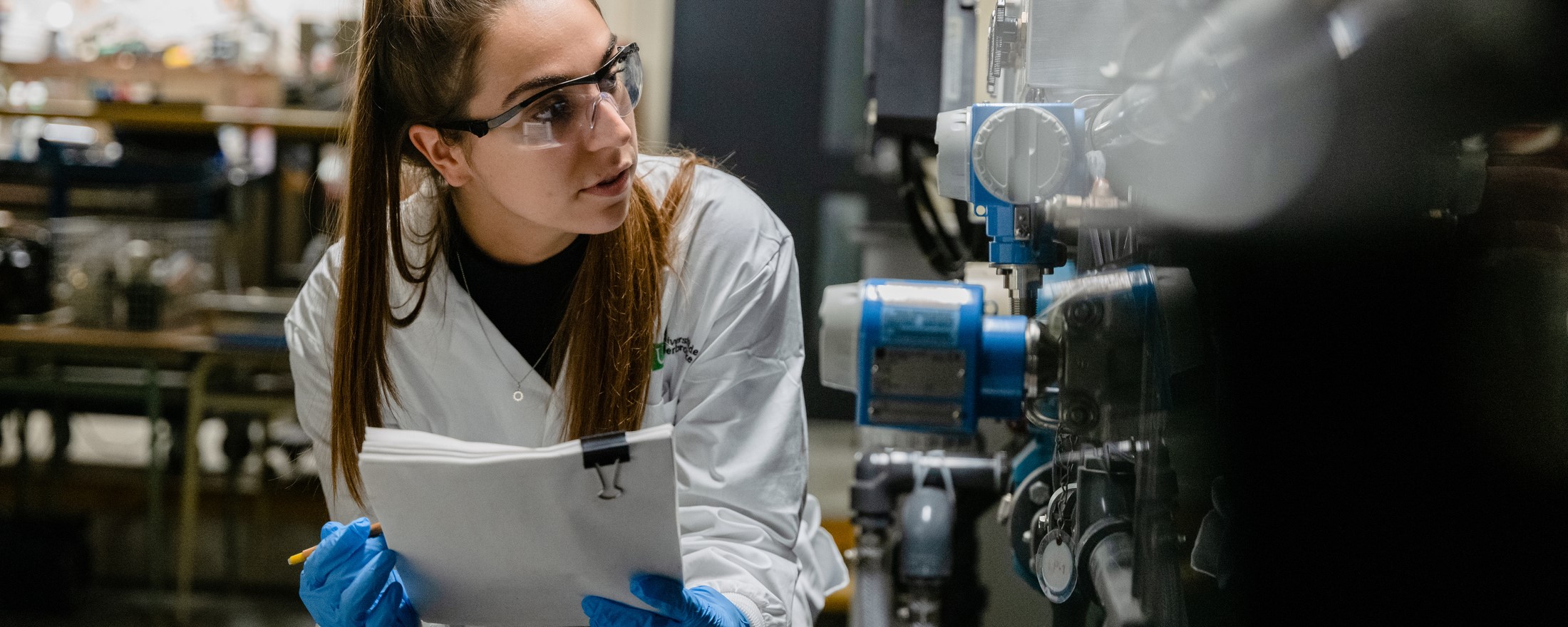Fabrication of OxRAM Crossbar Arrays With Superconducting Interconnects
Overview
- RESEARCH DIRECTION
- Dominique Drouin, Professeur - Department of Electrical and Computer Engineering
- RESEARCH CO-DIRECTION
- Serge Ecoffey, Professeur sous octroi de recherche - Department of Electrical and Computer Engineering
- ADMINISTRATIVE UNIT(S)
-
Faculté de génie
Département de génie électrique et de génie informatique
Institut quantique
- LEVEL(S)
- 3e cycle
- LOCATION(S)
- Campus de Sherbrooke
Project Description
Context: The latest major breakthrough in quantum computing (QC) has been the demonstration of quantum systems with more than 50 superconducting qubits allowing quantum supremacy for the first time. Other very promising qubit technologies include spin qubits based on solid-state quantum dots (QDs). They leverage the great maturity of CMOS technologies to offer low cost and highly scalable quantum devices. Major research centers like CEA, QuTech and Intel have started to report high quality spin qubits based on advanced CMOS technologies. However, the tuning and control of QDs are still performed mostly by hand with bulky classical electronics located outside the cryostat. The absence of fully integrated cryo-electronics capable of automatically tuning the QDs makes it currently impossible to build a large-scale quantum computer due to the “wiring bottleneck” between the quantum devices and the control electronics. In that scope, the 3IT-1QBit consortium is starting an ambitious research program to solve this problem using artificial intelligence and cryogenic neuromorphic circuits. We propose a PhD project focused to investigate cryogenic-compatible neuromorphic circuits based on TiO2 memristors (i.e. OxRAM) and CMOS circuits interconnected with superconducting materials. This CMOS-OxRAM chip will allow to implement automatic calibration methods of QDs using low power neural networks directly implemented into the cryostat. Research project: In collaboration with 2 postdoc fellows, 1 PhD and 1 Master’s students, the student will be in charge of the fabrication and characterization of OxRAM crossbar arrays with superconducting interconnects. This project will build upon the work of Pr. Dominique Drouin’s group at 3IT on TiO2-based memristors: -Fully CMOS-compatible passive TiO2-based memristor crossbars for in-memory computing - ScienceDirect -Investigation of resistive switching and transport mechanisms of Al2O3/TiO2−x memristors under cryogenic conditions (1.5 K): AIP Advances: Vol 10, No 2 (scitation.org) Supported by the expertise of 3IT, 1QBit and IQ in the fields of nanofabrication, neuromorphic engineering and cryogenic electronics, the student will have to (i) develop the fabrication process of crossbar arrays of TiO2-based memristors with superconducting interconnects based on NbN or TiN, (ii) perform the physico-chemical and morphological characterisations of the memory arrays to validate their quality, (iii) conduct in-depth electrical characterizations at room and cryogenic temperatures in the Quantum Fab Lab of the IQ of UdeS, (iv) Investigate the benefits of using superconducting interconnects with regards to OxRAM switching behavior and programing precision. Supervision & work environment: The project will be realized under the direction of Pr. Dominique Drouin and Pr. Serge Ecoffey within the IRL-LN2, an International Research Laboratory of the French CNRS based in Sherbrooke (QC, Canada). Pr. Fabien Alibart and Pr. Yann Beilliard will also participate in the supervision. The work will be carried out mainly at the Interdisciplinary Institute for Technological Innovation (3IT) and at the Quantum Institute (IQ) of UdeS, in close collaboration with the company 1QBit. 3IT is a unique institute in Canada, specializing in the research and development of innovative technologies for energy, electronics, robotics and health. The IQ is a state-of-the-art institute whose mission is to invent the quantum technologies of tomorrow and transfer them to the industry. 1QBit is a Canadian leader in QC, AI and high-performance computing. Its multidisciplinary team designs control systems, compilers and service architectures for exotic and next generation computing platforms. The student will thus benefit from an exceptional research environment that combines students, professionals, professors and industrialists working hand-in-hand to develop the future technologies for AI and QC. Researched profile: • Specialization in electrical and computer engineering • Strengths: knowledge in analog circuit design (Cadence, LTSpice), neural networks, Python/PyTorch • Excellent adaptability, autonomy, teamwork, problem solving skills, strong taste for interdisciplinary R&D • Fluent in French or English Contacts: jobnano@usherbrooke.ca Documents to provide: CV, transcripts of the past two years and references
Discipline(s) by sector
Sciences naturelles et génie
Génie électrique et génie électronique
Funding offered
To be discussed
Partner(s)
1QBit
The last update was on 12 March 2024. The University reserves the right to modify its projects without notice.
